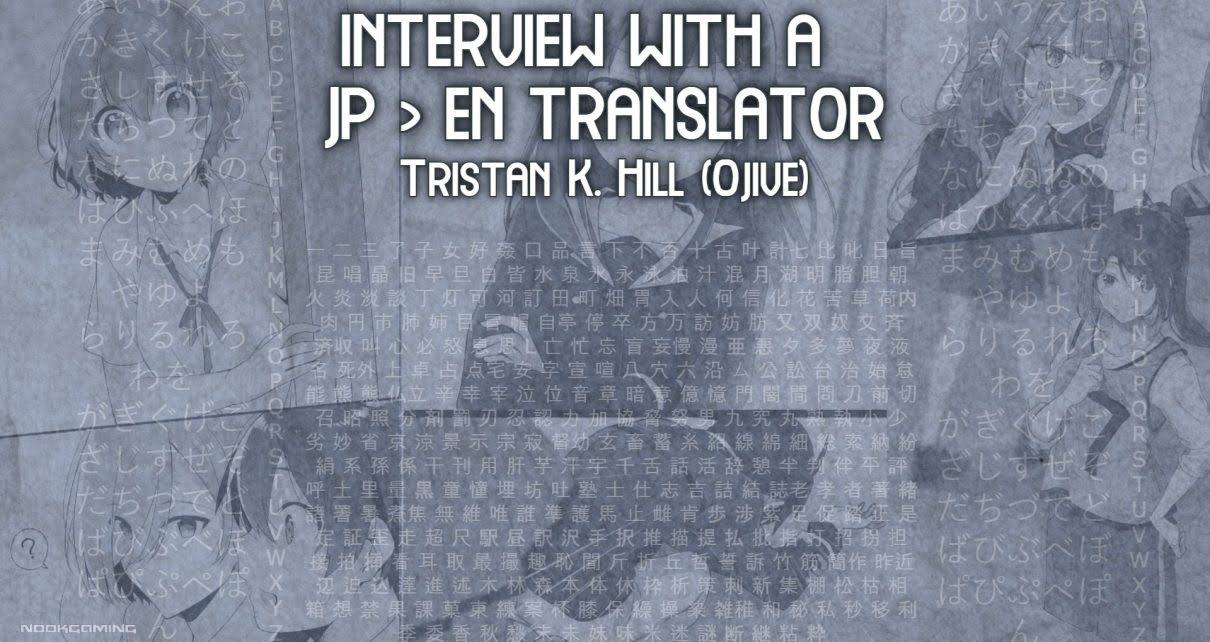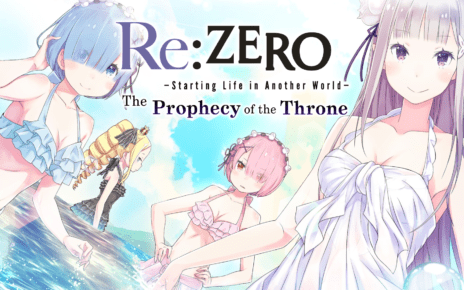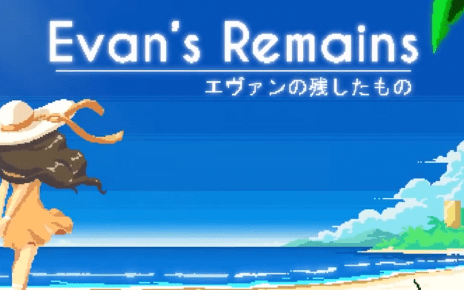Tristan K. Hill (also known as Ojive) is a Japanese-to-English translator who has worked on light novels, manga, visual novels, and other games. You’ll find his work on When Supernatural Battles Became Commonplace (light novel), Tearmoon Empire (manga), Gears Of Dragoon: Fragments Of A New Era (visual novel/DRPG), and more.
Having worked for J-Novel Club, Kodansha, JAST USA, PQube, NekoNyan, and Sekai Project and on a variety of types of media, he has a wide variety of experience in localizing Japanese media. He was kind enough to agree to an interview and to answer some questions about his role and thoughts on the industry.
Could you please tell us a little about yourself and what you do?
I’m a full-time freelance translator, so the majority of what I do boils down to, well, sitting at my computer and translating! My work’s a little more varied than that makes it sound, though—the actual process can be quite different from project to project, particularly for projects in different mediums. Games, manga, and novels all pose different challenges, and while the basic “read Japanese, output English” skill applies to all of them, I think people who’ve never worked in the localization industry might be surprised by just how not monotonous the day-to-day work can be when you’re not specialized in a single medium.
The other, much less self-evident half of my job is managing my own schedule, communicating with clients and coworkers, and staying on the lookout for potential future projects. Being a freelancer means being completely responsible for all of the above, and it can be a lot to deal with if you’re not used to it! Keeping a balance between taking on enough work to make ends meet but not so much work that it straight-up kills you can be a particular struggle, especially given some of the industry’s peculiarities. If you’ve ever been frustrated with a light novel that seems to have been canceled, but that the publisher won’t put out any sort of official announcement regarding, just imagine how the translator who’s been working on the series (and who almost definitely doesn’t know any more than you do) feels!
In short: my work consists of 75% translating, 30% self-managing, and 5% realizing that I misbalanced the first two percentages and will have to work overtime to make up for it.

Why did you decide to work in translation and how did you get your start?
That’s a slightly long story, so bear with me! The tl;dr of it’s that I more or less fell into this career backwards. I had just returned to my home country in late 2019 after almost four years working as an English teacher in Japan—I loved living there, especially after I moved from the snow-blighted wastes of rural Akita to Tokyo, but I’d come to the conclusion that teaching just wasn’t going to be my life and didn’t want the pressure of needing to jump into my next job right away in order to keep my visa active.
After getting back home I casually decided to start playing some games in Japanese to keep my language skills up, and just as casually stumbled across a fan translation group that was looking for a translator to work on an English patch for the very same game I’d picked out. I figured, “hey, I’m between jobs and have never really given media translation a shot, might as well see how I like it,” and long story short within a week of starting out I’d come to the conclusion that I wanted to make translation into a career.
My first attempt to get a job as a translator was, in retrospect, a hilarious failure—I found a recruitment page for a certain company that published manga, light novels, and visual novels, sent them a resume, and took a test… only to never hear back again. I sort of assumed that I’d done so spectacularly poorly they’d decided to ghost me on the spot, and remained under that impression until months later when the news broke that said company had gone through a catastrophic collapse immediately following the timeframe when I was in communication with them.
In the moment, though, my confidence was pretty shaken! I had a decent amount of savings from my teaching jobs, so I decided to spend a bit of time coasting off them while I polished my skills, and maybe get a side job if things didn’t seem to be working out and I started running out of money. Unfortunately for that plan, by that point it was early 2020, and, well, I’m sure you can imagine what happened next! Long story short, I spent the next several months doing nothing but translating, day in and day out, and landed my first professional gig in June of 2020 (translating for a gacha-game spinoff of an eroge franchise, which is a whole story in and of itself, but I’ve gone on enough tangents here already).
I’m telling this whole, drawn-out story to emphasize one major fact: my start in the localization industry was powered 10% by me being dedicated to getting a job in the field, and 90% by an outrageous amount of luck, circumstance, and help from people I happened to meet along the way. Everything sort of just fell into place for me, and I try not to take for granted that in a slightly different timeline with just a few fewer lucky breaks, I might never have made it to the position I’m in now.
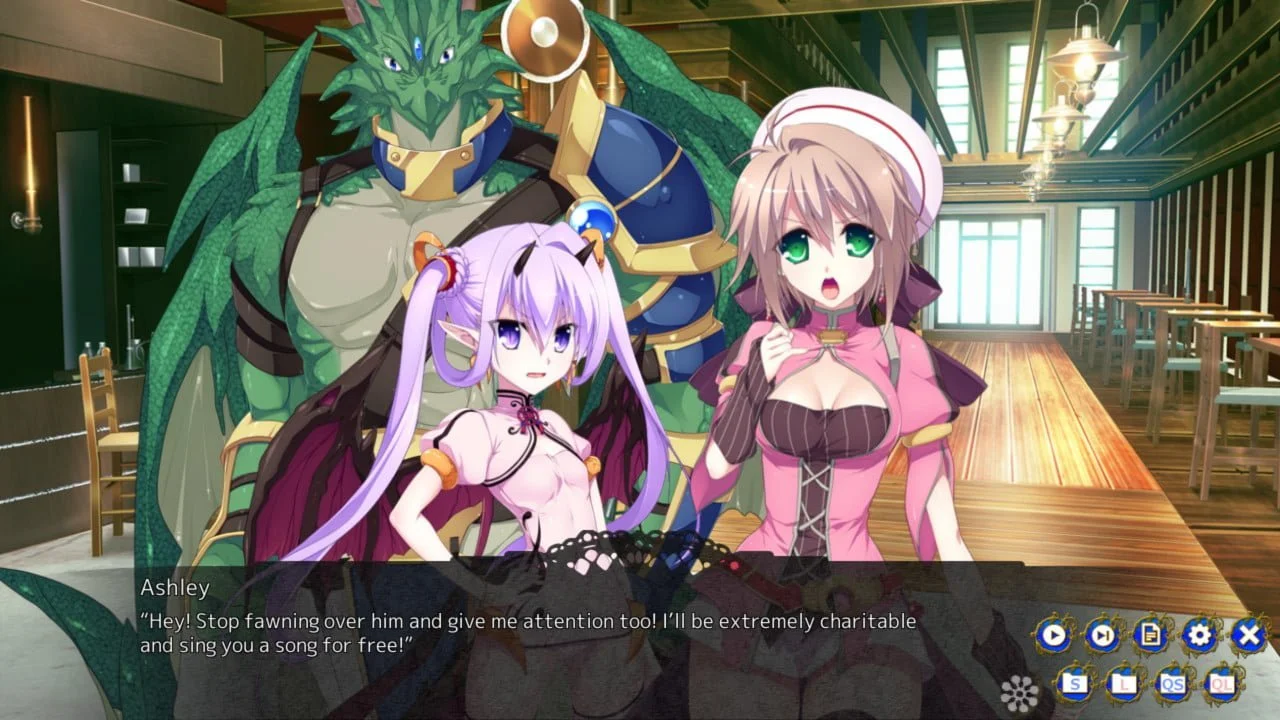
I imagine that your time in Japan helped, but could you tell us a little about how you learned Japanese and any tips for people trying to learn it themselves to read Japanese works?
I started my Japanese studies in college and the bulk of my early efforts took the form of formal lessons, so I unfortunately don’t have a ton of helpful advice for people who are just starting out. I do have a few pieces of advice for more intermediate learners, though! First up is a piece of advice that I see thrown around a lot, but that I’m going to reiterate since I think it’s very good: if your goal is to read Japanese media, then the best way to move toward it is to just start reading Japanese media, even if you’re not quite totally prepared for it. In particular, I’d encourage you to read for enjoyment, not 100% perfect comprehension! Nothing sucks the fun out of a book like having to stop ten times a page to look up words, and (for me, at least) fun is the single most powerful motivator to keep reading, and by extension, learning. 100% comprehension is vital for translating, but totally unnecessary for just enjoying a book, and if you’re like me you’ll get through that awkward middle-proficiency stage much easier if you obsess a bit less and enjoy a bit more!
Second, I think there’s a tendency in some Japanese-learning communities for people to lean a little too hard in the direction of recommending kanji flashcard apps and rote memorization tools to new learners. I’m not saying that study techniques like those aren’t worthwhile—far from it, they obviously work for a ton of people—but I also don’t think they’re the universal silver bullet that some people treat them as. I, for instance, have never responded well to rote memorization techniques—my brain just doesn’t work that way, and so flashcard apps have always been basically useless for my purposes. I bring this up so that I can encourage prospective Japanese learners to not feel discouraged if they bounce off whatever app their peers tell them to use—there are countless ways to learn a language, and one of them will probably work for you, even if it’s not what seems to work for everyone else!
The first thought that comes to mind when it comes to translation is understanding the target language, but what other skills do you feel translators need that are specific to the role?
Aside from all the time-management stuff that I already mentioned earlier, one very important skill for translators of media that’s often overlooked is writing ability. A translation that’s technically accurate on a pure meaning level can still be a bad translation if it doesn’t capture the spirit and voice of the original work, and it can take a lot of skill and effort to make that happen! This is an aspect of the localization process that editors are also heavily involved in, of course, but submitting a technically accurate but stilted and wooden translation will make it much harder for your editor to figure out what sort of voice the work should be written in to begin with—not to mention make them despise you for making their life a lot harder than it has to be!
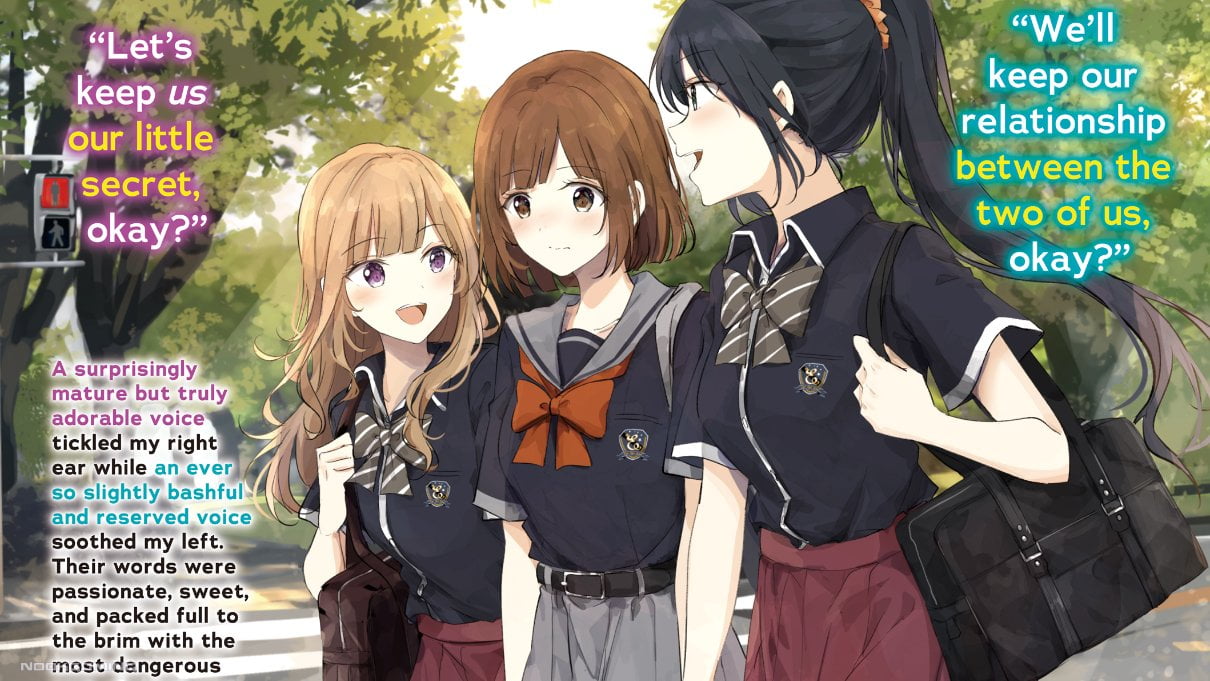
After you’ve finished the translation and sent it for editing, are you involved in any further work on the project such as collaborating with editors or anything else?
That depends entirely on the policies of the company you’re working for, and can run the gamut from intense involvement in every step of the process to complete radio silence from the moment of submission to the moment of release! I’ve been involved in projects all across the spectrum, and although I personally prefer to be in constant communication with my editors, I know other translators who feel the exact opposite way and prefer to yeet their manuscripts into the void and never hear about them again.
I’m definitely of the opinion that more collaboration leads to a better translation, in the vast majority of cases—some of the best solutions to translation puzzles that I’ve come across in my work have been the result of me brainstorming solutions with my editor (big shoutouts to the editors of Sidekick Never Gets the Girl, Yuritama, and When Supernatural Battles Became Commonplace, all of which were written by authors who are significantly more clever than me and all of which involved a ton of brainstorming to get some of the gags just right). On the other hand, the more TL/Editor collaboration, the longer and more labor-intensive the localization process becomes. At the end of the day this is a business, so I can understand why some companies opt for the more hands-off approach.
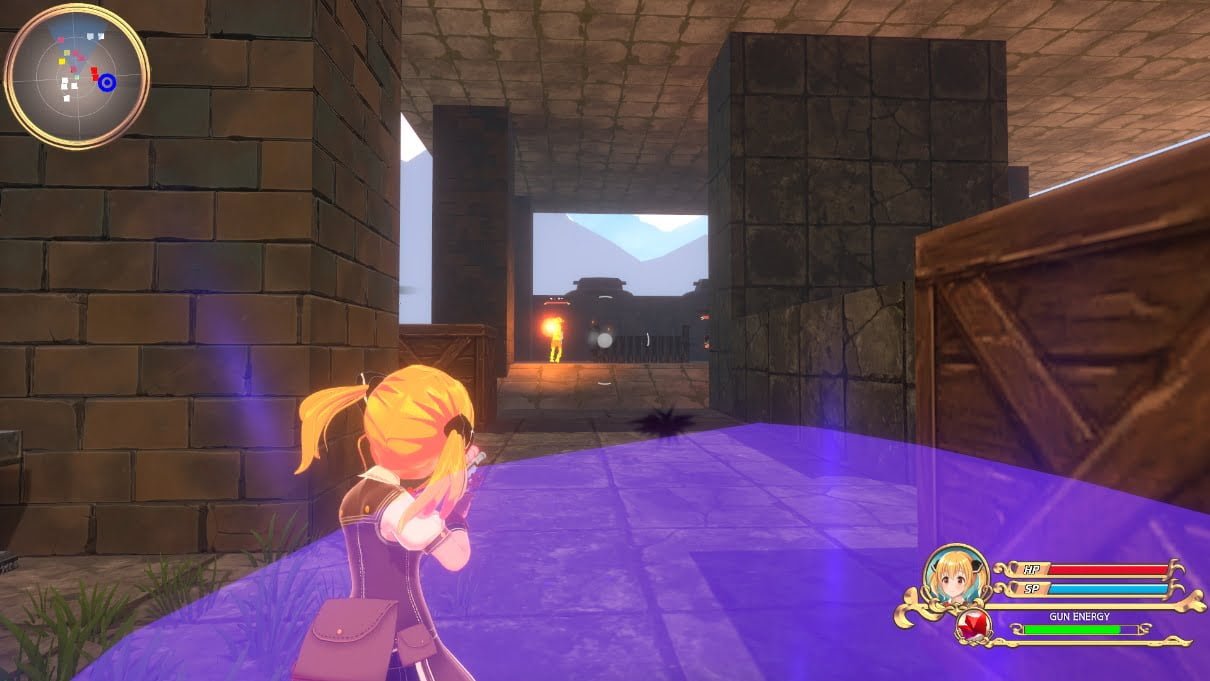
People always talk about translators, but do you think any important jobs in localization get overlooked? The unsung heroes of localization as it were.
Oh god yes, so many! Editors are the obvious answer—they do get credited for their work a decent amount of the time (slightly less often than translators, unfortunately), but it’s extremely rare for an editor to get credit for their work in the public acclaim sense, and honestly, that really sucks! It’s somewhat understandable that it turns out that way, since it makes intuitive sense to credit a translation to the translator (which, btw, is part of why a lot of us prefer the term “localization,” but let’s not open that can of worms right now) and the average member of the public will never see a translation’s pre-edit manuscript, but trust me when I say that editors can and often do make a much bigger difference than you might expect, in a very good way!
Editors aren’t the most invisible members of the process by a longshot, though—that unenviable award probably goes to QA people/proofreaders, who are very inconsistently credited for their work and virtually never given any sort of public acclaim. Again, that really sucks—QA/proofreading is an incredibly important stage in the localization process, and the people who do it deserve all the credit we can give them, especially considering that they’re the ones who make sure our most embarrassing mistakes never see the light of day.
The other two important roles that don’t get enough credit that come to mind offhand are image people and project managers. When I say “image people” I mean manga letterers, of course, but I also mean the people who make English covers and logos, the people who typeset inside illustrations for light novels, the people who edit image files in games—the list goes on and on. I think a lot of people only really take letterers into consideration in the context of manga, but I assure you that any project that’s been translated from Japanese had an image person involved in it in some capacity—and probably a pretty big one! As for project managers, all I can say is that if we didn’t have them, the entire localization industry would grind to a screeching halt within the week.
Could you expand a little on what Project Managers do?
Quite a lot, with a lot of variation depending on project and medium! Keeping track of a project’s progress and keeping everything on-schedule’s a basic part of the job, and while that probably sounds hopelessly mundane, the sheer number of people involved in the localization of even comparatively simple media can make it a lot more of a challenge than it sounds. Then there’s the fact that if anyone involved in the project has a question, the project manager is the person who they’re probably going to be asking, so having a broad awareness of everything that’s going on and being able to relay questions/communications, sometimes between the team and the original devs/publisher, is essential as well. Having a project manager who’s fast and reliable about that sort of communication can be a godsend, from a translator’s perspective—being able to get quick and straightforward answers to even theoretically simple questions like “Can this game engine handle italics?” or “What’s the company’s policy on this particular stylistic point?” is something you stop taking for granted very quickly after your first couple projects. The fact that this industry’s spread out across all corners of the world—having every member of a team living in a different timezone’s pretty common—just makes that communication facilitation role all the more important. Note, however, that I’ve never been a project manager myself, so I’ve probably missed some essential details/factors of the job that translators just don’t pick up on!
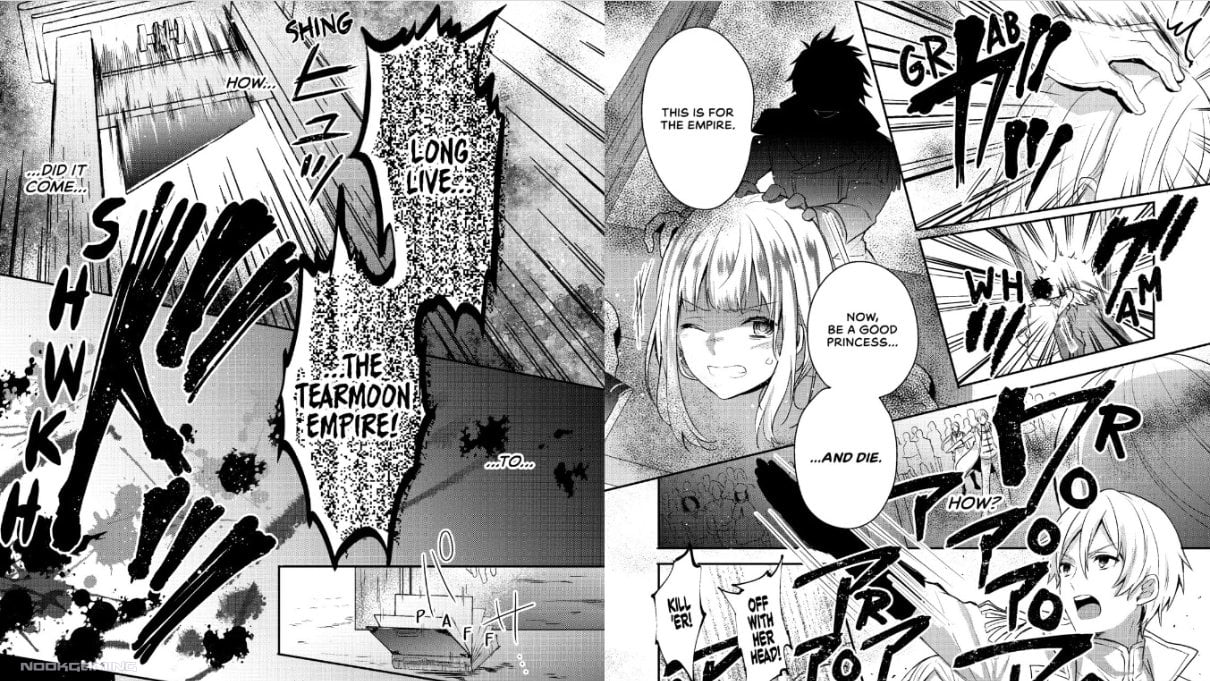
As you work on translations for visual novels, other games, manga, and light novels, how do you find they differ?
The processes are all pretty wildly different, in a number of ways! To start, novels are distinct in the sense that text isn’t broken into the sort of discrete blocks that are present in all the other mediums I work in. That’s an important distinction for two big reasons, I’d say! First up is the amount of freedom you have to restructure the text, which is sometimes necessary on account of differences in flow and logical structure between English and Japanese. Novels provide a ton of flexibility in that aspect (so long as you’re sure to always stay faithful to the original text, of course!), while games and manga in particular have a much more rigid framework that you have to stick within. The second reason is a little less concrete, and has to do with the broad experience of translating a work. Making progress in a translation is easiest for me when I can find a flow, if that makes sense, and the discrete nature of the text in games and manga makes the sort of flow I can get into very different from the flow I can find while working on a novel.
Stepping back a second to the rigid framework of games and manga, the two mediums pose another major challenge that you don’t have to deal with when working with pure prose: the ever-present and ever-feared space constraints. It’s quite common to have specific limitations on how many letters’ worth of text you can use in games, and when those limits are low, finding ways to cram in all the information you need to in a readable fashion can be a major challenge. That’s doubly true when translating UI text, which comes up a lot more than you might think (especially in non-VN games) and which often has extremely restrictive limitations!
Manga, meanwhile, poses the same problem but in more of a physical sense: everything that you write has to fit within the bubble or panel space allotted to it, and many of those bubbles and spaces were not designed with the structure of English text in mind. Japanese is generally written vertically, and the bubbles are sized accordingly, which means that it’s not uncommon to have to work a line of dialogue into a bubble that can fit ten lines of text, each precisely four letters long at most. This is another of those times where it’s the translator’s job to make everyone else’s jobs easier—writing with panel and bubble constraints in mind from the start will mean that far fewer adjustments to the script will be needed down the line. That’s probably the medium-specific constraint that I find most challenging, though that isn’t necessarily a bad thing! I’ve always appreciated the relative freedom that working on novels provides, and if I had to pick a favorite medium I’d probably lean in that direction, but having to put my mind in different modes from project to project keeps the work fresh for me. Sometimes it’s nice to have a project that challenges you in weird ways you’re not totally used to!
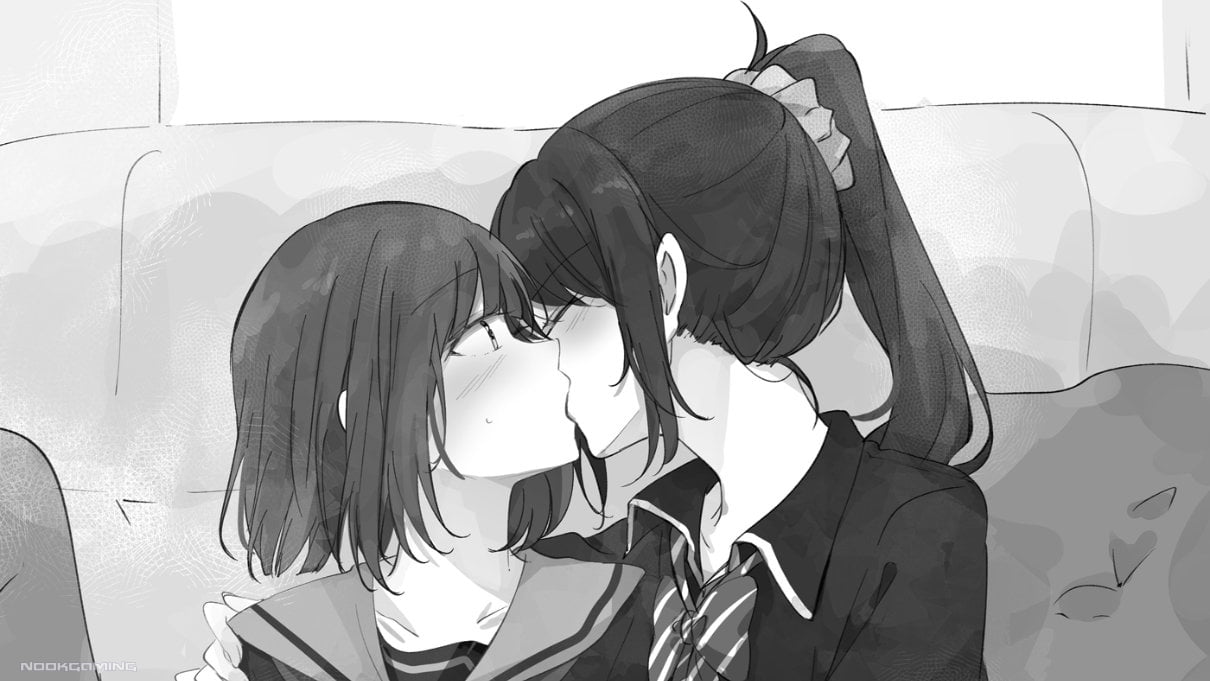
Could you tell us a little about your philosophy when it comes to localizing works? Including in what ways you try to preserve the intended meaning or feel of lines that cannot be directly translated.
I’ve started, rewritten, and deleted my answer to this question three times now, so I’m going to open this time with the most clear and concise answer possible: it’s really complicated and also highly contextual! How light or heavy a hand I have when it comes to the adaptation of lines that don’t translate directly will vary wildly from project to project, and even from line to line, depending on a huge variety of interweaving factors. Preserving meaning and delivering an equivalent reading experience are both always at the front of my mind, but there are so many ways to do that and so many factors that could influence my approach that… man, like I said, it’s complicated!
External factors that influence those decisions are a little easier to generalize about, so I’ll touch on a couple of those: audience and publisher expectations. Writing to audience expectation seems really straightforward unless you think about it too hard, at which point it becomes hopelessly complicated, but the gist is that I’ll try to figure out roughly what audience the piece of media I’m working on is targeted toward, and write to that audience’s expectations to the best of my ability. One major example from my own work that comes to mind offhand is the lengths we’ve gone to preserve and contextualize all of the otaku culture references in Supernatural Battles in their original form. Not only do said references have a major influence on the series’s tone and relate specifically to its themes and characterization, it’s also a series that’s very clearly written with an audience of hyper-nerdy anime fans in mind, and the equivalent audience in the English-speaking world would definitely want to see those elements kept as they were originally written!
Publisher expectations, on the other hand, are mercifully simple: I am, in some cases, bound by the decisions of the higher-ups. The degree of direction I receive varies from client to client—some publishers specify a preference for not retaining Japanese honorifics as-is unless there’s a very good reason to keep them, for instance, while others leave that largely up to my discretion—but there’s always going to be a style guide, and that style guide is always, in part, going to touch on how to handle certain localization choices.
As for the smaller, case-by-case decisions, I could keep writing about those for pages on end, but this answer’s already dragging! If I can self-plug for a moment, I actually have written mini-essays on my philosophy regarding specific localization choices in the translation notes for the series When Supernatural Battles Became Commonplace (which you’ll get if you buy the books directly from J-Novel Club’s website, rather than from a third-party retailer). The TL notes for volumes 2, 3, 4, 8, and 9 (when it comes out) all serve as long-form answers to this question in their own right, so if you want to read me ramble about this stuff for even longer than I already have, feel free to check them out!
Oh, and one last note—whenever I make a decision that feels even remotely heavy-handed, I’ll always leave a note to my editor with a description of how I would render the line more literally and why I chose to adapt it in the manner I did! That sort of communication is especially important for the sake of preserving the work’s intent, in my opinion—I can’t count on myself to always make the right call, and two heads are better than one.
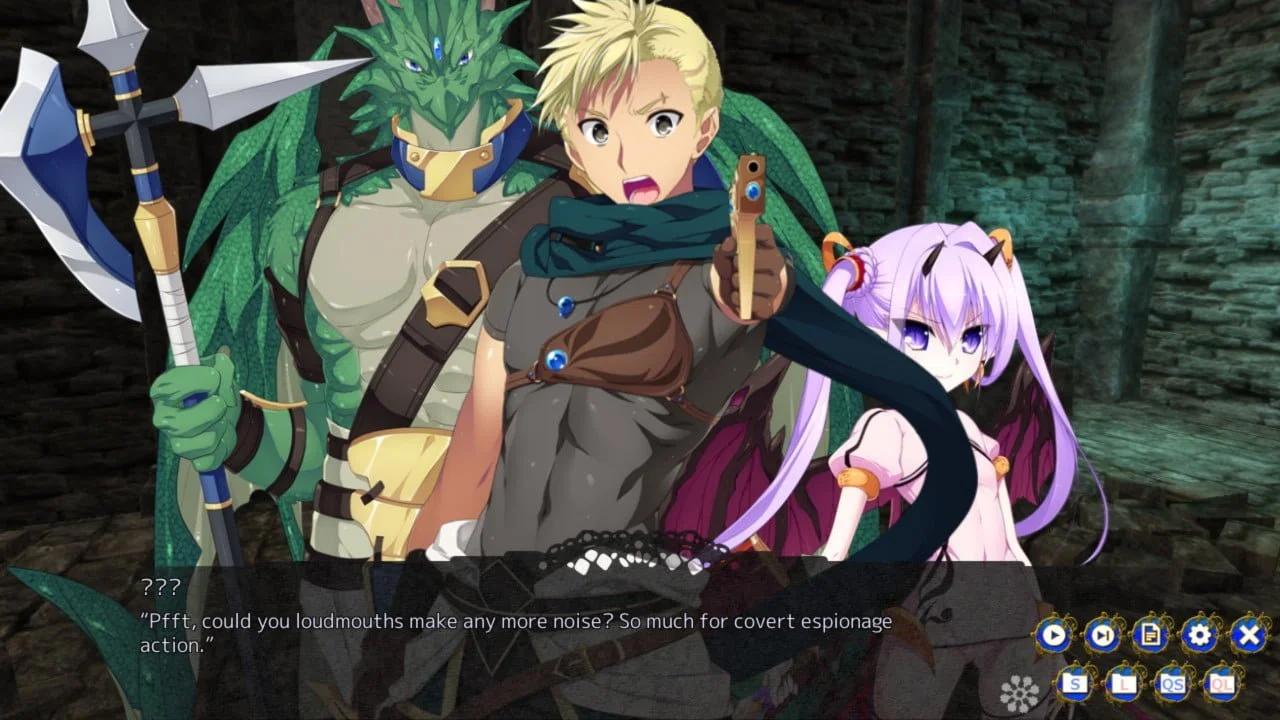
What are some of the primary cultural barriers you consider when translating a work for overseas audiences, if any?
Man, this is another tough one. I’m not 100% certain I’m interpreting this question in the way it was intended, but broadly speaking I would say that insofar as I consider cultural barriers, it’s always in the context of ‘are readers going to understand this?’ If the answer is ‘probably not,’ then some form of gloss (that is, a subtle explanation worked into the text) or adaptation may be needed. It’s important to note here that I’m not writing for just one culture—I’m translating for an English-speaking audience, which is a really, really big category that spans a wide number of cultures! Most of the companies that I work for mandate American English in terms of spelling and grammar, but I definitely don’t assume that I’m writing for an American audience, and my goal is never to Americanize the media that I work on.
Are you seeing any trends in the types of material you’re being asked to translate?
Isekai.
/Thousand-yard stare
Do you feel that machine/AI translation is affecting the industry and how is it/might it going forward?
I can say this much with certainty: if machine/AI translation is already affecting the industry, it’s doing so in a way that has yet to personally impact my workflow! The long and short of my perspective is that in their current state, machine translation tools just aren’t particularly helpful for my purposes. Plugging a line into a translation app or AI chatbot will get you, at best, an output in need of heavy revision, and that plus the fact that you would have to constantly cross-check the tool’s output with the original Japanese for accuracy results in a process that takes significantly more time than just translating the line yourself from the start would. I can’t see any place for it in my current toolset, and while it’s certainly possible that the technology will improve in the future, I don’t feel ready to speculate about whether or not that’ll actually happen any time soon.
What I can say, however, is that even if the current trends in MTL and AI don’t affect my translation process, there’s a real chance they’ll affect my bottom line! The concept of hiring translators to TL-check MTL at a lower rate than you’d pay them to translate from scratch has been floating around a fair bit this past year, and it’s one that I find pretty concerning, both considering the above paragraph and considering that rates in this industry are already pretty low across the board. It’s tempting to convince yourself that no respectable company would ever shove MTL tools down their translators’ throats and use them as an excuse to slash rates, but capitalism’s done way worse in the past and I’m not optimistic that things won’t go in exactly that direction without sufficient pushback.
I, for one, would never accept an MTL-checking job, both due to the fact that I want to keep making a living in this field and due to the fact that I can’t see MTL-enabled translations reaching an adequate degree of accuracy and faithfulness to the original author’s work. The idea that AI chatbots will revolutionize the translation industry in particular is hard for me to believe—I cannot possibly imagine a tool that will lie to your face when its language model fails ever being something that translators will be able to rely on.
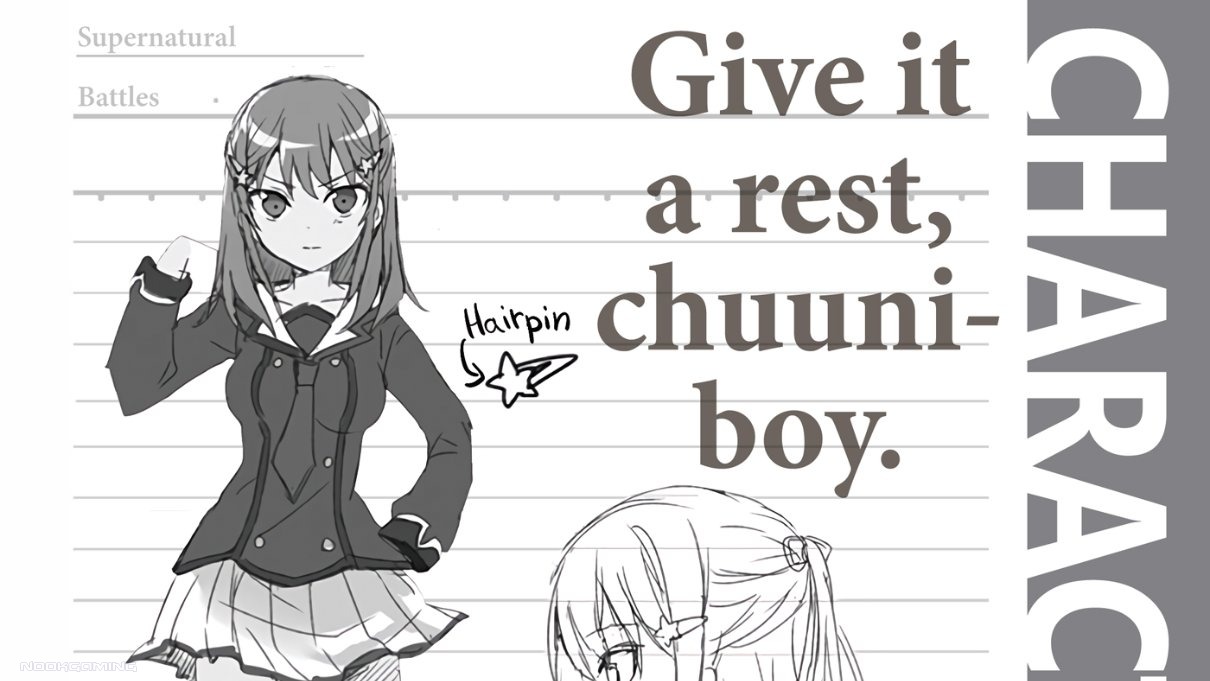
Fan translations are a controversial topic, with claims that they foster interest in Japanese works leading to more sales for published localized works overall and make titles more accessible, but also claims that they negatively affect the business of publishers akin to piracy. Could you share your thoughts on the ups and downs of fan translation?
This is a touchy one, all right, and it’s a topic that can be hard to talk about for a number of reasons! There’s a widespread (and not unreasonable) paranoia among the localization industry, and particularly among freelancers, that being too outspoken about fan translations could sour relations with certain companies, and it’s not hard to see why. Some companies take a very dim view of fan TLs, and unless you work in certain very niche corners of the industry you can’t really be associated with them after you’ve gone professional. I myself had to stop doing fan translations shortly before I started working on light novels, and I only feel comfortable being open about the fact that I did them at all because of the nature of the translations in question (ie, the fact that the group I translated for didn’t distribute any copyrighted material with the patches they made).
Now, to be fair, I do understand where a lot of anti-fan-TL sentiment comes from. The argument that a fan translation could negatively affect a piece of media’s chance to be officially translated is clearly not a universal truth—plenty of games, manga, and light novels have been licensed long after a fan TL was released—but it does carry a certain degree of weight, especially when it comes to smaller, more niche properties. On the other side of the spectrum, it’s hard not to understand why publishers would have a dim opinion of fan groups that translate new, popular, or (god forbid) already licensed works, and the argument that doing a fan translation without the permission of the work’s original creator is unethical holds a lot of water to me as well.
That being said, I also don’t think that the ‘are fan TLs okay’ question is as binary as it’s sometimes made out to be. In my mind there’s a world of difference between releasing a fan patch for a visual novel made by a long-dead company that requires users to own the Japanese release in order to install the translation, and putting out a translation of a Shonen Jump manga, images and all, in direct competition with the official release. There are very clear ways for fan translation groups to do their work in a more ethical manner, with encouraging readers to support the Japanese release being the most basic courtesy a fan group could give and getting permission from the original author rendering the ethics of the situation completely unambiguous. I guess what I’m trying to say is that there’s a very wide stretch of grey between the ethical and unethical extremes, and I feel like that stretch is often lumped in with one side or the other when it probably shouldn’t be.
I can appreciate the argument that the size of the industry and popularity of Japanese media in the modern day has changed the equation, and I do definitely think that putting out a fan translation in an ethical manner these days requires a lot more care and consideration than it did a couple decades ago, when only an infinitesimally small number of works ever got licensed. I just also think that it’s an overstatement to say that there’s no way to do an ethical fan TL anymore, and hope that the conversation can be a little less black and white in the long term.
Finally, while this doesn’t necessarily directly relate to the ethics of fan translation, I do think it bears noting that the history of the industry and the history of fan TLs are impossible to separate from one another, and that the industry indisputably would not be where it is today if it weren’t for the fan TL culture of the early 2000s. Crunchyroll, now a dominant presence in the anime industry, started out as a for-profit fansub aggregator and didn’t remove the unlicensed content on its site until three years after its founding. The official English release of Little Busters, meanwhile, lists Doki Fansubs in the special thanks section of its credits—and while it’s tempting to think of that choice as an audacious relic of a bygone era, I remind you that the English edition of Little Busters actually only just came out in 2017! Whatever stance one takes on the issue, I find it a little disingenuous when people act as if it’s always been completely cut and dry and consider any association with fan translations to be anathema.
At the companies that you’ve worked at, how much are the staff’s opinions taken into account when it comes to pursuing certain licenses?
For the most part, it’s a little hard to say! Some of the companies I’ve done work for do have ways to talk about licenses—one company in particular has a specific process for recommending potential series for them to pursue—but as for how and to what extent those recommendations are taken into consideration, I have no real way of knowing. The actual process of discussing and obtaining licenses is something that, in my experience, freelancers are essentially never involved in—I’ve certainly never had the chance to witness it for myself! I have had a few series that I recommended actually get picked up, but again, I can’t say for sure if my input was a factor (and in one case I can say with great confidence that my recommendation had nothing to do with it, seeing as the offer for the series went out only a week or so after I sent in my recommendation). I’ve also done work for plenty of companies that don’t take freelancer input about that sort of thing in any form. In short: the licensing process is as much of a black box from our perspective as it is from our readers!

Disregarding the feasibility of licensing, what would be the visual novel and light novel that you’d like to translate the most?
Oh, man, that’s a hard one to narrow down! For VNs I’m gonna have to go with Air, though really, ‘any of Key’s still-unlicensed games’ would be an equally accurate answer. Air in particular is just such a gaping hole in the history of the medium in terms of official releases that it feels like a crime it hasn’t happened yet. Kanon would be a close second, for obvious reasons!
As for light novels, I have so, so many answers, but my most realistic dream series would probably be (/deep breath) Yuujin ni 500-en Kashitara Shakkin no Kata ni Imouto wo Yokoshitekita no Dakeredo, Ore wa Ittai Dousureba Iin Darou (Very roughly, “I Loaned My Friend 500 Yen and He Gave Me His Little Sister As Collateral; What Do”), arguably the least unhinged series (no, really) by Sidekick Never Gets the Girl and Yuri Tama author Toshizou! I fell in love with Toshizou’s writing style while working on Sidekick, and at this point I’m just so invested in their success as an author that I’d kill to work on pretty much any of their books.
That said, I also have to mention my least realistic dream project that I would drop absolutely everything to work on, that being Jun Maeda’s not-so-light novel Nekogarizoku no Osa! Am I bringing that one up specifically because one of the publishers you interviewed in the past cited it as their ultimate dream license? Yes, absolutely, I have no shame.
If you would like to read more interviews, how about checking out our chat with Tentai Books or Monogatari Novels, both light novel publishers? Or perhaps you’d like to check out our visual novel, light novel or manga coverage?
Many thanks go to Tristan K. Hill for spending a significant amount of time discussing his work with us.

A gamer since the days of Amstrad and DOS and someone who has dabbled in a variety of professions. He enjoys a wide variety of genres, but has been focusing on visual novels and virtual reality in recent years. Head Editor of NookGaming. Follow him and the website on @NookSite.

